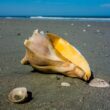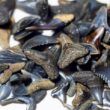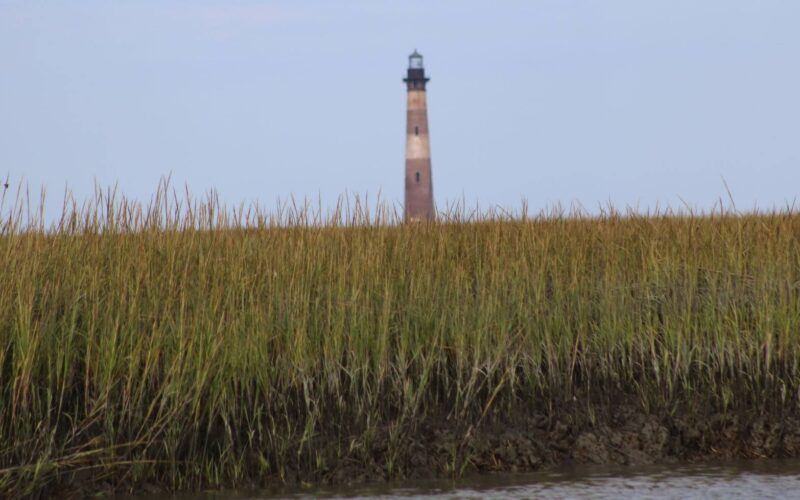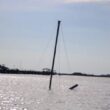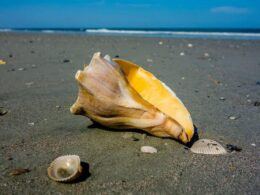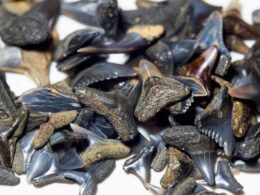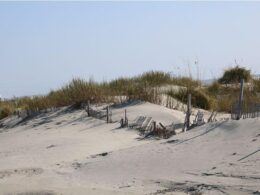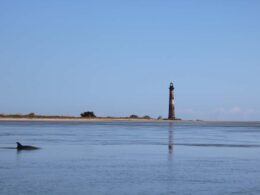I’m describing something salt marsh-ubiquitous. You’ve likely smelled it and maybe even stepped in it. Some have even smeared it on their face and body. If you’ve done these things, you’re allowed to call yourself a pluff-mudder. Oysters grow on it and spartina grows in it. Fiddler crabs stir it up. This stuff can suck the boots right off your feet.
I say pluff. Others say plough. So what’s it made of? -Fine sands, silts, clays, and organics. Sands, silts, and clays come from weathered and eroded mountains. As you can imagine, this process takes a while. Sands, silts, and clays (sediments), over vast stretches of time, make their way to the coast. Once at the coast, waves, wind, and water currents sort these sediments. The finer particles (what we call mud) settle in the quiet, low energy area behind the barrier islands (a.k.a. the ‘back barrier’). Periodic tides regularly nourish the back barrier salt marsh with new mud. Once the mud accumulates to at least average high tide elevation, spartina alterniflora (marsh grass) grows on it.
Any casual observer on my Salt Marsh Adventure recognizes many forms of life within the back barrier. Several species of crabs, mollusks, echinoderms, mammals, fish, and birds live here. Guess what else they do here? Mhmmm, so this accounts for some of the organic fraction of our pluff mud. Think about this next time you eat a muddy oyster. Proper oyster roast hosts make great efforts to wash all the mud off the oysters.
I’ve gotten the question, “can I walk on that mud?” From my own experience, I explain what happens if attempted. “You’ll sink to your calves, then you’ll struggle to move, then sink to your knees and maybe your thighs.” Lots of un-matched boots now live in the marsh. In the winter during oyster season, pluff-mudding becomes a necessity. Wear tight-fitting boots.
Captain Anton DuMars, a coastal geologist and 30-year Folly Beach resident.



